How do the best heat pumps work?
A heat pump works very differently than other home heating systems, in that it doesn’t ‘generate’ heat the way a furnace, boiler, radiator, oven or even a toaster or hair dryer would; instead, it collects heat from one place and transfers it to another.
Think of your refrigerator as an example of a heat pump so you can get an idea of what they do. Your fridge doesn’t ‘make cold’, it condenses or ‘captures’ the heat inside the fridge, and using refrigerants it transfers and releases that heat out the back as the refrigerant radiates heat through the coils.
That is the technical perspective on how these heat pumps work. Basically, modern heat pumps circulate refrigerant through evaporation and condensation cycles. The compressor is a mechanical device that pumps the refrigerant through two coils that exchange heat.
One of the coils evaporates the refrigerant in a closed circuit at a low pressure which then absorbs heat from outside because it is then cooler than the outside. The other coil condenses the refrigerant at a high pressure during which process it heats up, and that heat is distributed by fans into the building. For a more in-depth explanation with diagrams etc., see here to learn how heat pumps work.
Where are there incentives to install heat pumps?
What is also helping to make people interested in finding the best heat pumps is to take advantage of the financial incentives to swap fossil fuel heating to electric.
In the US you will probably want to act soon as the incentives are reducing as more people start to clue into the advantages of heating and cooling with a heat pump - check online for Federal and local grants, or find a reputable local HVAC company as they will probably know what's available.
In Canada, we found heat pump grants up to $6,700 offered by Hydro Quebec in 2024. This program now replaces the help provided by the Rénoclimat and Novoclimat program.
The federal government's Canada Greener Homes Grant is now closed, but you may still be eligible for a 40 000$ loan through this program.
If you're considering installing a heat pump for efficiency and to reduce heating and cooling costs, then be sure to read our guide on the most effective measures to take to reduce the amount of energy your home uses as well.
What are the different types of heat pumps?
Heat pump technologies can be used to transfer heat between air and water, and in many combinations.
• An air source heat pump (air-to-air heat pump) moves heat between the air outside of a home and the air inside.
• A ground source heat pump (also known as a geothermal heat pump or a water-to-water heat pump) transfers heat between your home and the ground below. See here to learn how geothermal heating works.
• A heat pump water heater (air-to-water heat pump) will take in warm air from your home and convert it into hot water; it then ejects cold air after much of the heat in the air is transferred to the water. There are also heat pump water heaters with exterior compressors that have additional efficiencies and benefits. See our heat pump water heater video here to learn how it can be used in conjunction with a mini split heat pump to compound efficiencies.
And you can see here for a comparison between air source and ground source heat pumps to see which is best.
Which are the best geothermal heat pumps?
Here at Ecohome we have contributors from Europe with lots of experience of (so-called) geothermal heat pumps. They personally advise against them on the grounds of their experiences with these types of systems, citing the purchase cost, the complexity and expense of finding and correcting leaks, of drilled loop systems needing 2 wells to prevent cooling and declining performance, of the number of installers who close to avoid warranty payouts and leaving owners high and dry...
Now this isn't to say that all ground source heat pumps are a bad idea, but be extra careful when choosing an installation company for geothermal heat pumps, checking how long they've been in business, their online reviews (and by that, we mean actually read the worst ones, and best ones - because if all the best ones just say "really good" and the worst are very detailed, long and disastrous, then chances are they've been rigged to look good...)
Check the fine print on the warranty too - how long is the ground loop warranty, not just the heat pump itself... The ENERGY STAR Most Efficient 2023 - Geothermal Heat Pumps winners are a good place to start if you do decide to go that way here... We're concentrating in this article on air source heat pumps, as we've found them to be a safer bet overall for reliable and efficient heating and cooling - and if you need any convincing, look up "geothermal heat pump problems" online - we found around 6 million records for this search which is pretty high!
What is a mini split heat pump?
A ductless mini-split heat pump - also simply called a mini split or zoned HVAC – is a single head unit mounted on the inside wall that is connected to an exterior compressor (note - they can be paired, see below).
No air passes between the inside and outside of the building, the fan head draws in air from the home which then passes through a coil with the heated refrigerant in it to then blow heated (or cooled) air directly into the room.
It is called ‘ductless’ because it only conditions the air in one room rather than being delivered to different rooms through ducts like a centralized core unit would do. This makes them an excellent option as supplementary heat or cooling for high-use rooms or additions that may not have access to the full home system.
See here to learn what a mini split heat pump is. A mini split heat pump can also be distinguished by the size of the compressor, which is about half the size of a full home heat pump system.
Can you install mini split heat pumps with multiple heads?
There is middle ground between a mini split heat pump and full home heat pump heating system. If you purchase a heat pump with sufficient capacity, you can have it installed with two indoor heating units. Mini split heat pumps are often used as supplementary heating for additions or common spaces to reduce the cost of heating, but for providing additional heating and cooling to more than one space is possible.
As an example, many homes, particularly those built on a slab on grade instead of a basement install radiant heating on the main floor leaving the need for additional heating in second story rooms only. A solution for that, if rooms aren't too big, would be to purchase a heat pump sized to handle more than one head. You can find a minisplit that will heat up to three different spaces.
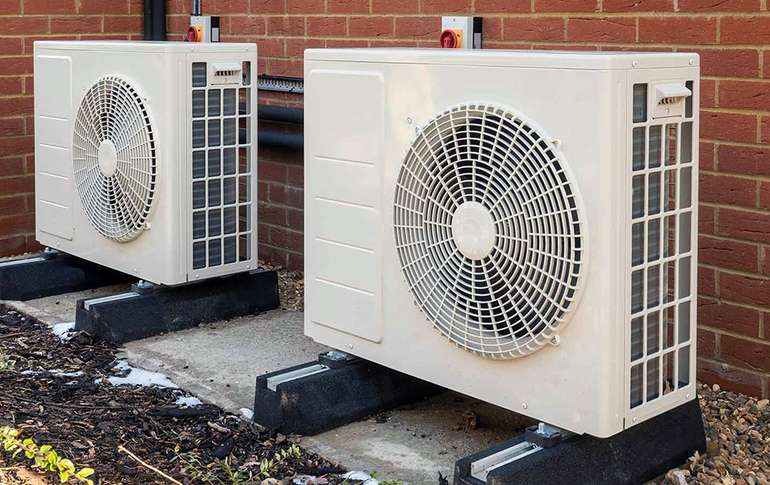
Heat pump source and heat pump sink – heat pumps as air conditioners
The heat pump ‘source’ is where you get the heat energy from, and the sink is where the heat energy is deposited. When energy is extracted from the source the temperature then drops, and when it is added to the heat sink the temperature of the sink rises. For clarity - the ‘sink’ is your home in winter,and the ‘source’ is your home in summer.
The heat pump sink and source switch seasonally in most northern climates, as you transfer heat into a house in winter and out of a house in summer. This is why a mini-split heat pump is an excellent source of heating and cooling for small spaces and additions. Beyond just the added efficiency, one machine provides both heating as well as cooling.
For geothermal heat pump systems that are used for cooling, the ground is the heat sink all summer as you deposit unwanted heat from the house into the ground. This has an added benefit of increased efficiency in winter as the ground has been warmed all summer when the heat pump is in cooling mode.
Centralized heat pump home heating and cooling systems
Where a mini split heats and cools from a ductless head directly into a space, a centralized heat pump distributes heat and cool air through a home just as a typical forced air furnace would, just more efficiently.
Water-to-air and air-to-air heat pumps are compatible with forced-air HVAC systems, so you can harness heat from the ground through geothermal heating systems to heat your home but you can also use heat from the exterior air, which is a less effective but much cheaper system to install.
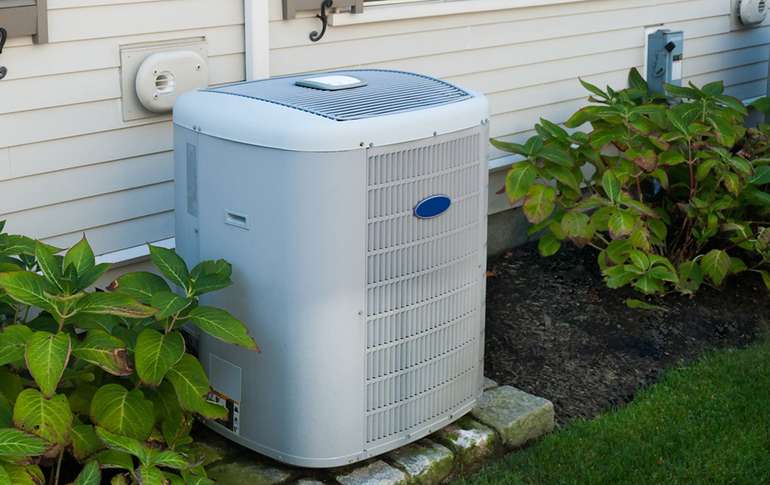
What is a refrigerant?
A refrigerant is a chemical compound with a very low freezing temperature, and when in a gas or liquid form, can be used to transport heat. Again, think of your fridge – heat is condensed and captured in the refrigerant so it can be transferred and released as the heat radiates out from the coils on the back of your fridge.
Refrigerants are also used to transfer heat through air conditioners, and a dehumidifier uses refrigerants to cool the coils so that humid air condenses on it to extract moisture. This is effectively what occurs with your windows in winter when warm, moist air condenses on cold glass to leave water droplets.
At what temperature does an air source heat pump stop working?
When the outside air temperature reaches the lowest operational temperature of a heat pump it will shut off. So even the best heat pumps on the market - which can work as low as -16.6F (-27C), will sometimes offer no value in very cold climates.
So for climates that see temperatures this low, or if your home is in an area that is known for electrical outages during the cold weather of winter, it is important and advisable to have a secondary heat source that needs no electricity to function.
What is a good backup heat source for a heat pump?
If you live in a climate where a heat pump can provide almost all of the heating needs, it is still wise to have a back up heating system. You may even be required to do so by your local building authorities. Choosing the best backup heating system to pair with a heat pump depends on your climate and the affordability of alternative systems.
The easiest and cheapest system to set up would be heating with electricity and baseboard radiators. If you live in a region with high electricity rates, remember that this is really only an emergency backup for the coldest nights. Also, if your area has high peak electricity rates, remember that the temperature is lowest when the rates are lowest, which is at night. So you would most likely not need to run those heaters when the rates are high anyway.
Another feature to consider is to have a backup system that will work when there is a power outage. Extreme weather events caused by a climate change are becoming increasingly more common, so being able to keep homes warm in the absence of power is a great way to future-proof your home.
Heating with an efficient wood stove is without a doubt the simplest system that will offer you heat security in the absence of power as it will always work as long as you have wood and a match.
Another option is a pellet stove, but they will have a hopper that often requires power to feed pellets into the firebox. There are two workarounds for that – you could have a small solar array dedicated to the pellet stove, but you are still at the mercy of the sun unless you include a battery backup. There are also off-grid pellet stoves that don’t need power to operate.
Replacing a gas furnace with an electric heat pump
Switching to an electric heat pump when replacing a gas furnace will offer you significantly lower monthly bills, and it gets you off fossil fuels as your home heating fuel. Heating with gas is being phased out in Europe and some US cities already, so switching sooner than later is a wise move.
Even in areas with high electricity rates this is not likely to be a great concern when you consider the low temperatures at which modern heat pumps can operate. In most climates there will be very few days when you would need to operate the electric heater. Therefore, the overall savings still make it a much more affordable and greener way to heat your home, even if there are a few days where it works like a standard electric furnace.
The difference between a water-to-water heat pump and a water-to-air heat pump
A water-to-water heat pump is compatible with liquid heating systems such as hydronic radiant floors or radiators. Radiant heating such as heated floors can be a very comfortable and efficient heat delivery system for homes when compared to forced air systems.
It can quickly become even more appealing when combined with a water-to-water heat pump. However, geothermal heating has a very high initial set up cost, so whether or not it is cost-effective could only be determined on a case-by-case basis.
It's also worth considering an air to water heat pump that heats a radiant floor - either water radiant or air heated radiant floors.
With larger buildings (and/or an easily accessible body of water as a heat source), it can be a worthwhile investment to seek out a water to water heat pump. But it becomes less financially sensible with smaller homes as you can often accomplish the same energy savings by investing in insulation rather than mechanical systems.
How much do mini split heat pumps cost?
A mini split heat pump will range in price depending on quality. Under that umbrella we would include the warranty, the low-end operating temperature and whatever features and controls it has.
You can get a lower-quality heat pump for under $2,000 (USD), but you get what you pay for. We've often seen models that claim a high performance on paper, but from a brand you may have never heard of, and from what we've read, those outliers don't always perform as promised.
And often a cheaper heat pump will have a warmer effective ‘temperature ceiling’, so you will be getting less benefit from it the lower the temperature drops. A higher-quality unit with a more useful functional temperature range will be priced more in the range of $3,500 to $4,500, but paying for that additional efficiency will offer you much greater savings in the long run. If you see a heat pump on offer that looks too good to be true, then in our experience it probably is.
As is often the case, buying the cheapest *something* can end up being the most expensive *something* in the long run when performance, maintenance and lifespan come into play. Heat pumps are no different, particularly now as they have become quite popular to reduce energy consumption and greenhouse gas emissions.
The market is currently flooded with lower-quality brands from overseas that, at a glance, look just the same as the high-quality units, but the similarity often stops at the look. The larger and more reputable brands of heat pump manufacturers are typically more concerned with their eco-reputation, so they are likely to have more environmentally responsible industrial manufacturing processes. In that we included better materials, safer paint finishes, lower impact refrigerants, green energy used in manufacturing, better waste management and recycling. So we think it's worth the cost to get a better unit from a recognizable name.
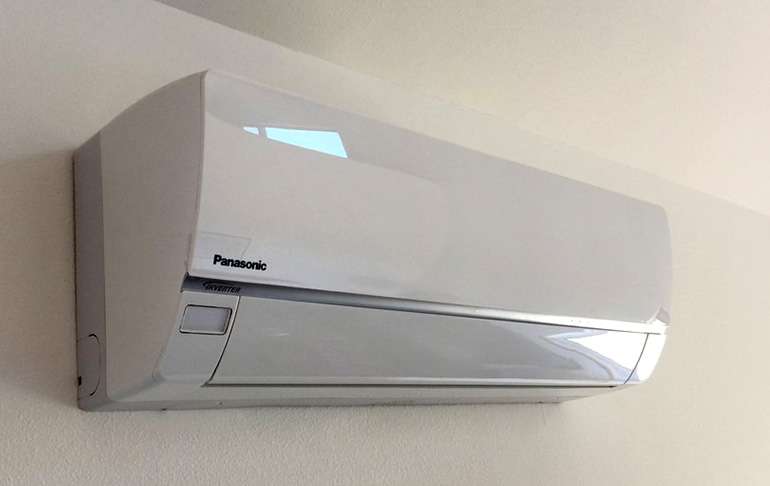
Why are heat pumps more efficient?
The process of condensing and moving heat is a more efficient process than generating heat. Electric resistance heat has a COP (coefficient of performance) of 1, meaning that for one watt of energy provided, you will get 1 watt of heat. Outside of very minor losses, this equates to about 100% efficiency, as all the energy consumed is converted into heat. This, however, is just the ratio inside your home. There are what are called ‘line losses’ in the form of energy that is lost as electricity travels from the source (power station) to your home.
The burning of fossil fuels - once they have arrived in your home - has an efficiency rating below 100% as not all of the available energy will be converted to heat. Some is expelled through chimneys as heat loss, and systems that are not as clean burning will emit particulate (green house gas emissions) into the atmosphere.
The energy consumed through the operation of pumps and fans as refrigerants and air are moved, means heat pumps have a COP of about 3. This means the energy expended can result in 3 times as much heat being produced.
Since more thermal energy is produced in that process than the electric energy consumed during the heat transfer process, the efficiency rate of heat pumps is much higher that other heat sources. An efficient heat pump working in optimum conditions is approximately 300% efficient.
This is, however, dependent on the temperature of the source. The lower the source temperature the less heat is available to harness, yet the machine still has the same operating costs. So a heat pump will hit a point where the COP drops to where you really aren’t saving much energy compared to other heat sources.
Now to go back to the point about functional temperature range, it’s important to consider the climate in which you live when choosing a heat pump. To invest in a heat pump that offers you very little or no benefit much of the time does not make a lot of financial sense. Therefore, the bottom end functional temperature is really the first thing to consider in order for a heat pump to be worth the investment, as it needs to be compatible with your climate. Understanding the above all depends on understanding the different efficiency ratings for heat pumps and how to compare them and know what they mean - discover more about SEER v HSPF v COP (& SCOP) ratings here.
The pros and cons of heat pumps
Choosing heat pump instead of forced air furnaces or other heating systems has more benefits than drawbacks. Here are the pros and cons:
The pros of heat pumps are:
- Lower operating costs. Since they heat more efficiently, you will save money on your monthly utility bills.
- Less maintenance. Heat pumps do not generally require as much maintenance as combustion heating systems.
- Safety - no fossil fuel is being burned in your home. This is a good thing.
- Greater efficiency translates directly into lower carbon emissions.
- They cool homes also so there is no need for a secondary air conditioning system.
- Longer life span. Typically, heat pumps last longer than other forced air heating systems.
The cons of heat pumps are:
- A decent quality and high performance heat pumps can have higher up-front purchase and installation costs.
- Reduced effectiveness or complete loss of effectiveness during periods of very, (very) cold temperatures.
How long do heat pumps last?
If a heat pump is serviced regularly and well-maintained, you could expect to get 20 years or more out of it before it needs replacing. Normal operation wears on a heat pump gradually, so the more smoothly it operates the easier it is on the machine. This is why sizing the machine properly for the space you want to condition will have an impact on its lifespan.
What size heat of pump do I need?
Heat pump sizes are defined by the amount of air they move, and that rating is in tons. Most heat pumps for residential use range between 1.5 and 5 tons, and the rule of thumb for the average US house is to get a unit that can supply about 1 ton for every 400 square feet.
That ballpark figure is just to get your head in the game; when it comes to making a final choice of the right size heat pump for your home, there are a few important variables beyond house size, such as:
- How well-insulated and airtight your house is. A poorly-insulated and leaky house will lose heat much quicker than a well-insulated and airtight house. The climate you live in is important, as there will be a lot more heat demand for a house in very cold northern areas.
- How much you will rely on it matters as well - if you want it just to top up heating or cooling a bit and save some money on bills from a furnace or other source, then the stakes aren’t as high as if it were the only heat source.
Why heat pump size is so important:
Choosing the right size of heat pump for a space will affect how efficient it is. If a unit is too small then it may run all the time, this puts a lot of strain on the machine so it can shorten its life. If a heat pump is too big, then it will start and stop more frequently, which is less efficient (see below).
There is an unfortunate reality within the heating and cooling industry when it comes to sizing HVAC equipment, and at the root of that is, who makes the decision and that traditionally they've always upsized.
So when we rely on installers to make that call, they are more likely to recommend a larger size unit, and they do that for a couple of reasons. Firstly, installers usually mark up the units so if they sell you a bigger one they will make more money. Secondly, if they underestimate the heat demand and the unit doesn’t produce enough heat, they are likely going to hear from angry clients.
So, it is easier and more profitable to sell you a bigger one that will work less efficiently than risk a call back. And if your HVAC professional doesn't ask a lot of performance related question about your house, then in likelyhood you'll end up with a recommendation to get a unit that is bigger than you need.
Why oversized heat pumps are less efficient
A heat pump that is oversized for the space it needs to condition will blast a ton of hot or cold air in a short period of time, then it will shut off. The least efficient operating time - and this applies to a multitude of different mechanical systems - is when they are starting up. Most machines will work best and most efficiently when they are running rather than starting up, so it is better than they run longer and less frequently.
Think of it like in your car driving down the road – you use more gas accelerating than you do maintaining a constant cruising speed. If you have a V8 engine and speed from redlight to red light you will continuously be accelerating and braking, so you will use more gas and wear your brakes out faster. On the other hand, if you cruise along in a 4-cylinder car at the appropriate speed you will get the green lights, not use your brakes, and use a lot less gas. Heat pumps are a bit like that. And its cheaper to buy a small heat pumps (and cars) than big ones.
Also, a correctly sized heat pump will run quieter. In the opinion of Sunshine Renewable Energy, a reputable HVAC company in Canada, ductless heat pumps operate at about 17 to 26 decibels. Standard ducted heat pumps of 2-ton to 5-ton in size average about 40-60 decibels in operation.
What to look for when buying a heat pump
Choosing the best heat pump starts first with getting one with a low enough functional temperature operating range. In a more temperate climate, the low end temperature limitations become less of a concern.
See what features are available in heat pumps, and that can be in both durability and function. Check the heat pump review below to get an idea of various durability features that some brands offer compared to others. Some ‘smart’ heat pumps will even have heat sensors that track where occupants are in a room and direct more heat or cooling in that direction.
What is the seer rating for heat pumps and AC?
The SEER rating is a measurement of the cooling capacity efficiency of air conditioning and heat pumps. The SEER rating is calculated using the cooling output during a typical cooling season and dividing it by the electric energy input during the same time frame. A SEER rating is a maximum efficiency rating, and the higher the number the better.
The SEER rating is a good indication of quality, and the higher the rating the better. As an indication of what an efficient SEER rating is, the American Council for an Energy-Efficient Economy recommends selecting a heat pump with a SEER rating no less than 15.
What is the HSPF rating for heat pumps?
HSPF stands for Heating Seasonal Performance Factor, and it is a heating efficiency metric for rating for heat pumps. The higher the rating, the more efficient the heat pump is. A higher HSPF rating in a heat pump efficient results in less energy being use during operation and increased energy savings and lower bills for homeowners over the life of the system. An HSPF rating of 13 is considered to be the highest efficiency rating of heat pumps.
Heat pump buying guide and reviews
See our review of the best heat pumps on the market and what features they have. The following heat pump reviews are in no particular order and we don't endorse any of them over another. This is simply to give you an idea of the types of features you will have to choose from when selecting a brand of heat pumps from the many out there.
We are going with market research, but first hand experience is important, so if you've had a good or bad experience with a particular heat pump, please add your thoughts to the comments section below.
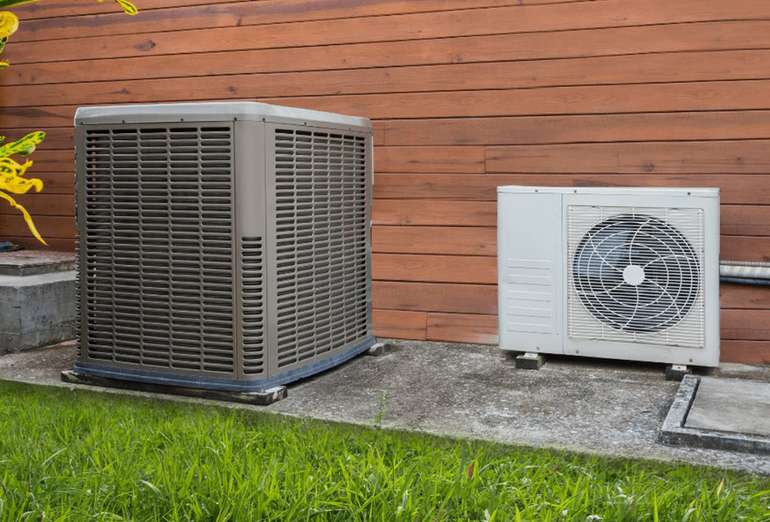
Goodman GSZC18 Heat Pump review
Goodman heat pumps are a respected mid-range brand, but our research online indicates that they might not match the high-end category heatpumps for reliability. They're not in the same price category all the same, and Goodman requires homeowners to have an annual maintenance schedule for professional tune-ups of their central heating and cooling systems to maintain a valid warranty - which is a double-edged sword. This brings extra cost, but it does ensure the system is running optimally and any refrigerant leaks spotted and remedied early.
Product features:
• Capacity: 59,500 BTU in heating mode / 56,500 BTU in cooling mode
• Unit size: 35.5" x 35.5” x 40”
• Efficiency rating: ENERGY STAR certified, up to 19 SEER, up to 10 HSPF
• Average decibels during operation: 75dB
• Specialized features: SmartShift technology with short-cycle protection, factory-installed suction line accumulator, high & low-pressure switches, ComfortBridge Technology, expanded ComfortAlert diagnostics built-in, two-stage Copeland UltraTech scroll compressor.
Unit cost: Approximately $3,800 to $4,200 USD
Customer reviews: Over 4,600 five-star reviews, 44 one-star reviews
Warranty: 10-year limited unit replacement warranty, lifetime limited Compressor warranty, 10-year parts limited warranty
Carrier: Infinity 20 Heat Pump (25VNA0) review
Carrier heat pumps are among the more energy efficient heat pumps on the market with what looks like an above average track record in durability.
Product Features:
Capacity: 25,200 to 37,200 BTUs in heat mode, 32,800 to 35,200 BTUs in cooling mode
Unit size: 50.19” x 36.13” x 39.25”
Efficiency rating: ENERGY STAR partner and up to 20.5 SEER, up to 13 HSPF
Average decibels during operation: 55 dB
Unit cost: Approximately $4,940 USD
Specialized features: Greenspeed Intelligence, variable-speed compressor operation for ultimate quiet and comfort, optimal temperature and humidity controls, sound dampening compressor blanket, and Silencer System II design, WeatherArmor Ultra protection, non-ozone depleting refrigerants and Ideal Defrost heating operation with Infinity control.
Customer reviews: Customers seem overall very satisfied with this Carrier heat pump, one site we checked giving them 75 five-star reviews.
Warranty: 10-year parts limited warranty with customer registration.
Trane Heat Pump XV20i (4TWV0060A) review
TRANE offers flexible heating and cooling solutions that save you money and energy. The XV20i offers over 750 stages of comfort for maximum efficiency, and Trane Technologies recently announced plans to cut its product carbon emissions by nearly 50% by 2030.
Product features:
Capacity: 60,000 BTUs
Unit size: 54” x 37” x 34”
Efficiency rating: ENERGY STAR certified; Up to 20 SEER, HSPF of 10
Average decibels during operation: 43 dB
Specialized features: ComfortLink II Communicating Capability, Compressor Sound Insulator, Unique Refrigerant Cooled Inverter Drive, Climatuff Variable Speed Compressor, all-aluminum Spine Fin coil, WeatherGuard II Top, DuraTuff Rustproof basepan, WeatherGuard fasteners, and a simplified two-wire connection.
Efficiency rating: Rated Most Efficient 2019 by ENERGY STAR; Up to 20 SEER
Unit cost: aproximatelty $3,250 USD
Customer reviews: Customers give Trane heat pumps high marks for energy efficiency, though they can be pricier than other brands. 17 out of 24 (71%) reviewers recommended this product on resources we found.
Recognized as the Most Efficient of ENERGY STAR in 2019.
Rheem RP20 EcoNet Variable Speed review
Rheem is a well-known HVAC brand that offers a reliable, durable and energy-efficient heat pump range. Rheem heat pumps use a scroll compressor, which keeps the operation quiet and efficient. The company also offers a three-stage heat pump that provides maximum comfort and energy savings.
Product features:
Output capacity: 60,500 BTUs
Unit size: 35.75” x 51” x 35.75”
Efficiency ratings: ENERGY STAR qualified, up to 20 SEER, up to 11 HSPF
Average decibels during operation: 59 dB
Specialized features: PlusOne Energy, PlusOne Triple Service Access, PlusOne Expanded Valve Space, EcoNet enabled, Copeland Scroll Variable Speed Compressor, enhanced mufflers, optimized fan orifice, improved tubing design, composite base pan, electronic expansion valve, optimized defrost settings.
Efficiency
Unit cost: Approximately $2,230 USD
Customer reviews: No star ratings available on the resources we were researching but customer reviews indicate user satisfaction, easy operation and low maintenance requirements.
Warranty: 10-year conditional unit replacement (registration required), parts - 10 years
Lennox Heat Pump XP25-060 review
We like that all 10 of Lennox's heat pumps are Energy Star-qualified, and even its basic, single-stage Merit unit earns a SEER rating of 16. At the other end of the spectrum, the top-of-the-line SL25XPV has a SEER rating of 24 and comes with Precise Comfort technology to adjust heating and cooling for minimal energy output.
Product features:
Output capacity: 60,500 BTU
Unit size: 47” x 39.5” x 35.5”
Efficiency rating: ENERGY STAR qualified and up to 24 SEER
Average decibels during operation: 64 to 74 dB
Specialized features: SilentComfort Technology, dual-fuel capability (when paired with a Dave Lennox Signature Collection furnace).
Unit cost: $5,540 USD
Customer reviews: Customer feedback typically mentions energy efficiency and durability.
Warranty: 10-Year Limited Warranty on covered components including compressor.
Amana Heat Pump AVZC20 review
Overall customer reviews for Amana heat pumps seem highly positive. Customers often note Amana products' quality, features, quiet performance and affordability. Many reviews express good levels of satisfaction with Amana's warranty coverage and dealer services. A little-known secret: Goodman and Amana are the same company! You read that right. In 1997 Amana was actually purchased by Goodman. This means that the AC units are constructed in the same facility and their parts even come from the same assembly line.
Product features:
Capacity: 52,000 BTU
Unit size: 35.5” x 35.5” x 41.25”
Efficiency ratings: ENERGY STAR certified up to 21 SEER; 10 HSPF
Average decibels during operation: About 74 dB
Specialized features: Variable-speed swing and scroll compressors, high-efficiency variable speed ECM condenser fan motor, ComfortBridge technology compatible, advanced diagnostics.
Unit Cost: $2,600 to $4,599 USD
Customer Reviews: Users gave this Amana heat pump 37 five star reviews, comments included being pleased with quiet operation.
Warranty: Lifetime Replacement Limited Warranty on compressor,
In 2018 it was labelled most efficient of ENERGY STAR in meeting performance levels set by the U.S. Environmental Protection Agency.
Coleman Echelon Split System Heat Pump (HC20) review
Coleman's HVAC units are regarded as an affordable option for homeowners. For example, its most efficient central air conditioner can cost as little as $4,000, including installation. Reviewers we found online say Coleman's HVAC products are durable.
Product features
Capacity: 60,000 BTU
Unit size: 46 ½” x 34 ½” x 38 ¼”
Efficiency ratings: ENERGY STAR qualified and Up to 20 SEER
Average decibels during operation: 54 dB
Specialized features per unit type: Variable speed compressor, WhisperDrive comfort system, touch-screen thermostat with communicating capability, Charge View.
Unit Cost: About $1,610 USD
Customer reviews: Overall reviews in general speak of customer satisfaction, mentions of energy efficiency and quiet operation and low maintenance.
Warranty: Standard 10 year parts and compressor
Are American Standard AccuComfort Platinum 20 Heat Pump review
American Standard are a household name in North America for many things to do with bathrooms and plumbing, but did you know they also make heat pumps? This model has a Seer rating of 20 which is very high and if an air conditioner has a 20+ SEER rating, that is considered an excellent energy-efficient unit which is why we've included it.
Efficiency rating: Up to 20 SEER, 10HSPF
Average decibels during opeation: 54 dB
Specialized features: AccuComfort, Comfort Control, Duration variable speed compressor, Compressor sound insulator, all-aluminum Spine Fin coil, Durabase basepan, heavy-duty steel louvered panels, SermaGuard rust-resistant screws and appliance-grade finish.
Unit Price: $2,495 USD
Customer reviews: Customers report satisfaction with the reliability and durability. A consumer report study found American Standard heat pumps had lower repair costs that other brands.
Warranty: 12-year limited warranty on compressor, 10-year limited warranty on outdoor coil, 10-year limited warranty on internal functional parts
York Affinity Series YZV Heat Pump review
York heat pumps are exceptionally energy efficient because they use a split system. Working in parallel, a compressor and air handler maximize the efficiency of airflow between your inside air and the outside environment. York has units that range from 13 to 18 SEER, and many of the other brands here have a higher SEER rating making them slightly higher performing at lower temperatures than that of York.
Product features:
Capacity: 2 to 5 tons
Unit size: 46 ½” X 35 ½” X 34 ½”
Efficiency ratings: ENERGY STAR qualified, Up to 20 SEER
Average running decibels: 35dB
Specialized features: QuietDrive system, Variable-capacity compressor, Charge Assurance, Climate Set, automotive grade power paint, superior coil protection, environmentally friendly refrigerant and ECM fan motor.
Unit cost: $2,580 USD
Customer reviews: Customer feedback indicates satisfaction with reliably and energy performance.
Warranty: Standard 10 year parts and compressor warranty.
Bryant Evolution Extreme Variable Speed Heat Pump (280A) review
Bryant offers a high efficiency rating compared to most standard, split-system heat pumps. Recognized as the Most Efficient of ENERGY STAR® 2019, this model combines intelligent system control with variable-speed operation to provide premium comfort and energy savings and an exceptional SEER Rating of up to 20.5.
Product features:
Efficiency ratings: ENERGY STAR qualified, Up to 20.5 SEER, up to 13 HSPF
Average decibels during operation: 58dB
Specialized features: Variable-speed operation with longer, optimal dehumidification capability, electric heating, non-ozone depleting Puron refrigerant, zoned system, senses operating conditions and adjusts to enhance system reliability, complete outer paint coverage for long-lasting durability against outside elements. AeroQuiet™ System II design compressor sound blanket; quiet mount split post compressor grommets, forward-swept fan blade
Unit cost: $4,540 USD
Customer reviews: General feedback of Bryant heat pumps speaks of excellent energy efficiency and quiet operation. 52 of 67 were 5 star reviews, 3 gave 1 star reviews.
Warranty: 10-year parts limited warranty upon registration
Now you know which heat pumps are best and why, learn more about efficient home heating systems for eco homes and sustainable home building in our green building guide and these pages:
Find more about green home construction in the Ecohome Green Building Guide pages - also, learn more about the benefits of a free Ecohome Network Membership here. |
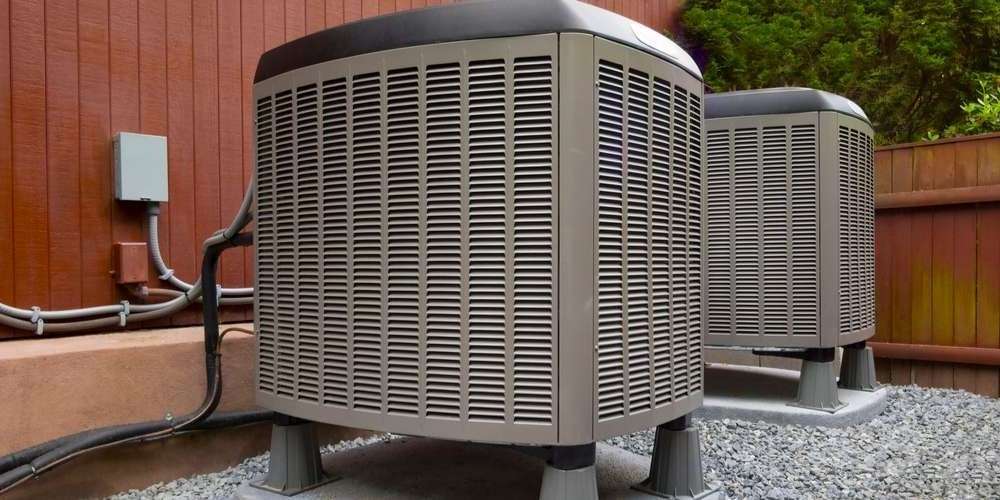









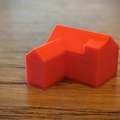





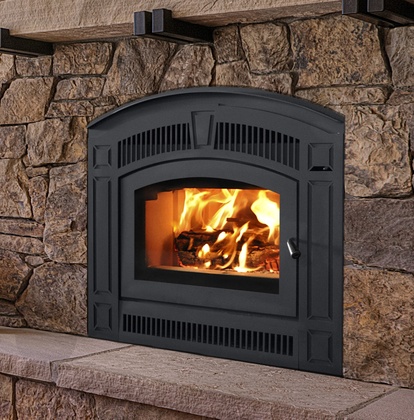

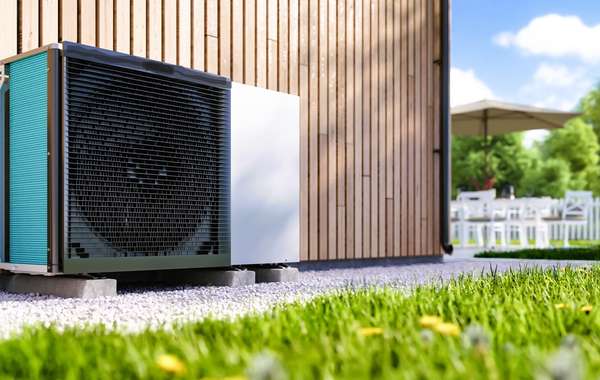
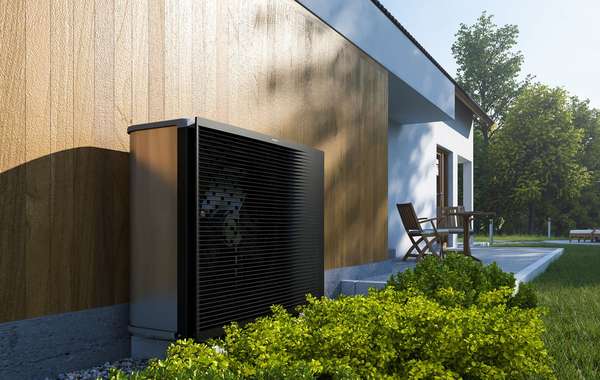
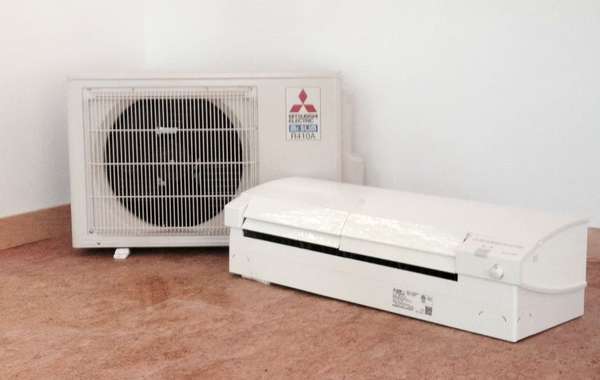
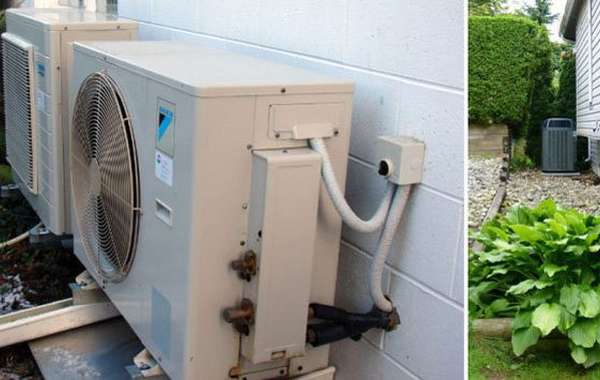
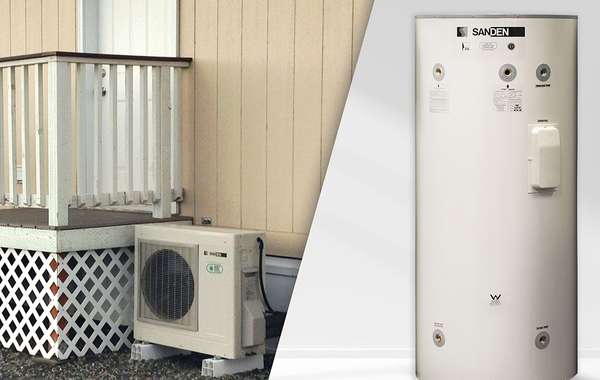
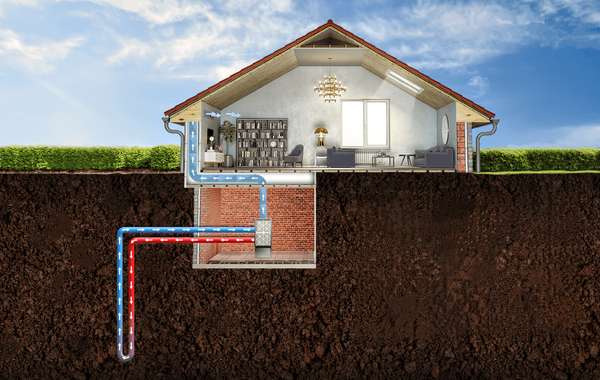
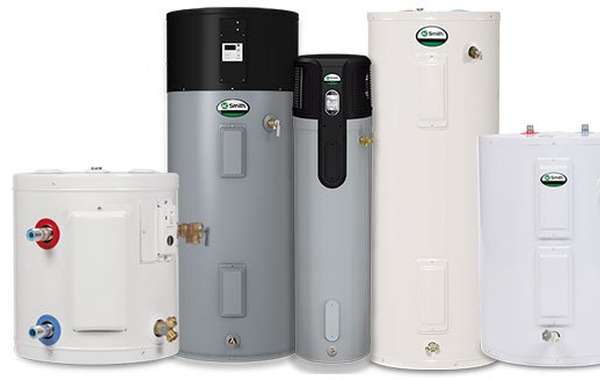
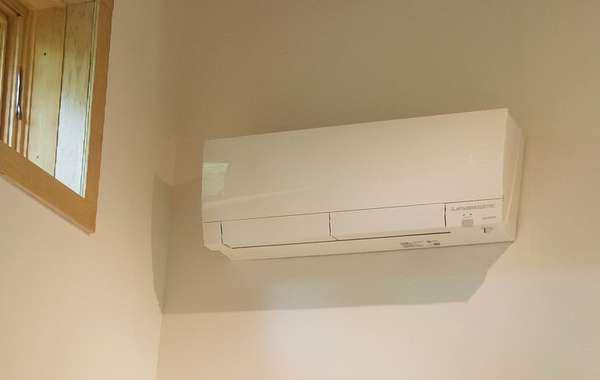
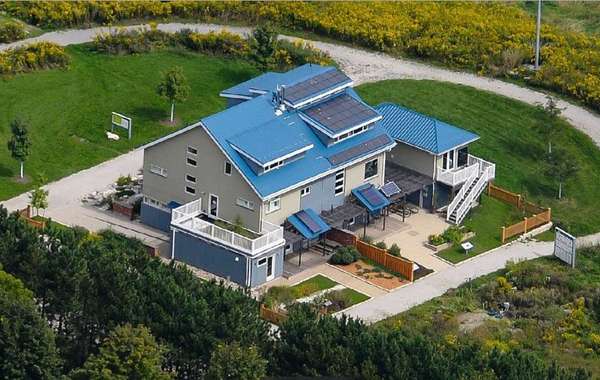
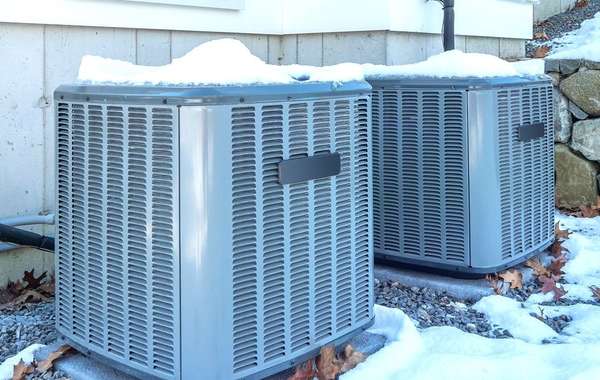
What are your thoughts on Mitsubishi heat pumps? I was quoted $28,000 for my three level 1800 sqft home.
Mitsubishi is an excellent brand. We installed their Mr. Slim mini split heat pump in our Edelweiss demonstration house many years ago and we're really happy with it.
We really can't speak specifically to the model you are considering, or the pricing, but we certainly are happy with the company. The price of full system installs can vary a lot as labour rates can easily double from one area to another across the country.
A heat pump is definitely a good option to consider when choosing an HVAC system for your home because it can be used both to cool and heat a home as needed. However, when it comes to using a heat pump, there is an optimal way of using it.
Hi Caroline, we don't allow outbound links on our comments page so we had to remove the one you posted, but if you want to summarize and explain your thoughts we'd welcome that.
First heat pump seven years ago from a company that also sells oil. A few months ago when it needed to be repaired they categorically refused because they were busy. Silly people soil tanks. I do not recommend people who sell fossil fuels for this reason. That's also bad to help any sort of fossil fuel dealers continue to do business!
Do you have any thoughts on Bosch heat pumps, I have been quoted on Bosch, but have not one to reference them and how they are?
I replaced an older American Standard heat pump with a Bosch inverter style, variable speed heat pump 4 years ago. It wasn't the cheapest option, but it is very quiet and extremely efficient. It does a great job of keeping the house a more consistent and comfortable temperature. It has been trouble free and cost efficient. I highly recommend Bosch and wouldn't hesitate to purchase another Bosch unit.
I too have a quote for a Bosch Heat Pump coupled with a Dettson Electric Furnace. We have a Dettson oil furnace today which is Canadian manufactured and has held up well for 20+ years.
My guess is Bosch is still relatively new to the HP market hence, no review(s). TBC?
We are replacing our 5 1/2 year old Rheem heat pump after it stopped working. We paid for one costly repair that lasted 2 months and decided not to throw more good money after bad. Since Rheem won't honour their warranty we decided to bite the bullet and buy a new heat pump. Guess what brand it isn't?